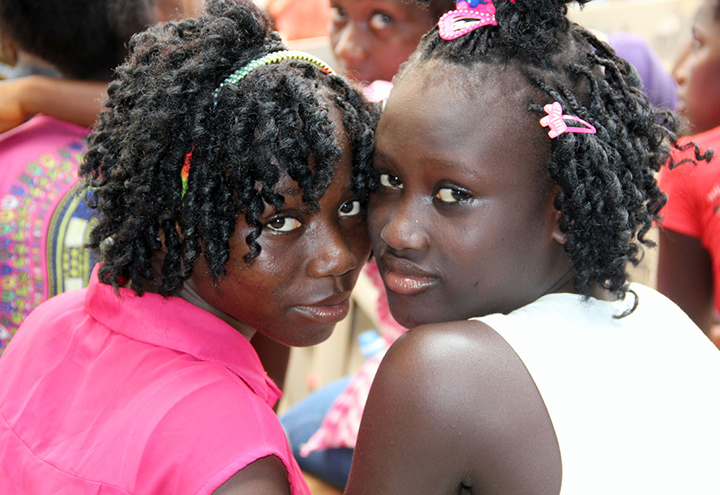Making Education for Girls a Priority in Nigeria
Poverty is one of the most devastating challenges facing Nigeria today. According to UNICEF, 100 million people live on less than $1 a day. Children suffer the most, especially young girls.
The Salesian Sisters at the Mary Help of Christians parish know firsthand the difficult plight of girls and young women. They’ve been working in the Ikorodu community for decades, certainly long enough to identify the challenges that youth and families face on a day-to-day basis. They are strong believers that education is the way out of poverty for many.
However, the barriers to education are often insurmountable for those who need it most. The region has few schools available, and tuition costs are too high for many low-income families. They desperately need access to quality education at a reasonable price.
That’s why our Salesian Sisters decided to act.
Backed by the generosity of caring friends like you, the Sisters have started construction on a nursery and primary school. Once completed, the facility will provide educational opportunities for 250 students, with priority given to young girls.
“Providing a strong academic setting is the primary focus of the Salesians and is essential for community development,” explains Father Michael Conway, Director of Salesian Missions. “We support our Salesian Sisters in their efforts to bring accessible education to marginalized youth.”
With the foundation and walls of the facility now complete, construction continues to make steady progress. The school will serve as a vital addition to an existing network of support including youth centers, feeding programs, health clinics, and other services. Together, these resources help ensure that the basic needs of girls are met so they can focus on their studies and pursue brighter, more promising futures.
Rescuing Young Girls from Forced Labor and Prostitution
Last month, Salesian Missions joined other humanitarian organizations and the international community in recognizing World Day Against Child Labor. Begun in 2002, the day raises awareness about the global extent of child labor and the need to eliminate it.
According to UNICEF, financial insecurity in families is the primary reason children are forced into labor. Sixty-one percent of child labor occurs on farms or in other agricultural environments. Children are also exploited in a range of other industries, including mining, fishing and even drug trafficking.
Young girls are especially vulnerable, often falling victim to sexual exploitation and prostitution. They are robbed of their innocence, self-esteem and dignity. Adding to the misery, this tragic existence prevents them from attending school and closes the door to future opportunities and stable employment. As a result, many are trapped in a cycle of chronic poverty, emotional trauma, and hopelessness.
“Children need to be in school gaining an education rather than working,” explains Father Michael Conway, Director of Salesian Missions. “Our programs rescue children from abusive conditions, ensure they have their basic needs met, and are enrolled in classes. We enhance those efforts by providing scholarship funding and guaranteeing Salesian schools have what they need to provide high-quality education for youth.”
For example, Don Bosco Technical Institute in Ashaiman, Ghana has received funding from Salesian Missions to upgrade their computer laboratory with new laptops and software. Students at the Institute, including many young women between the ages of 17-25, are now better equipped to gain skills for later employment or higher education.
At the Maria Auxiliadora Popular Technical School in Caracas, Venezuela, 355 youth are benefiting from enhanced learning opportunities thanks to the generosity of Salesian Missions donors. Funds were used to purchase supportive technology equipment for classes in accounting and administration. This investment improves the educational environment and strengthens the development of practical skills and competencies necessary for young women and men in the workforce.
These Salesian programs are making a big impact on the lives of young girls and women who would otherwise be destined for lives of abuse, substandard pay and exploitation.










